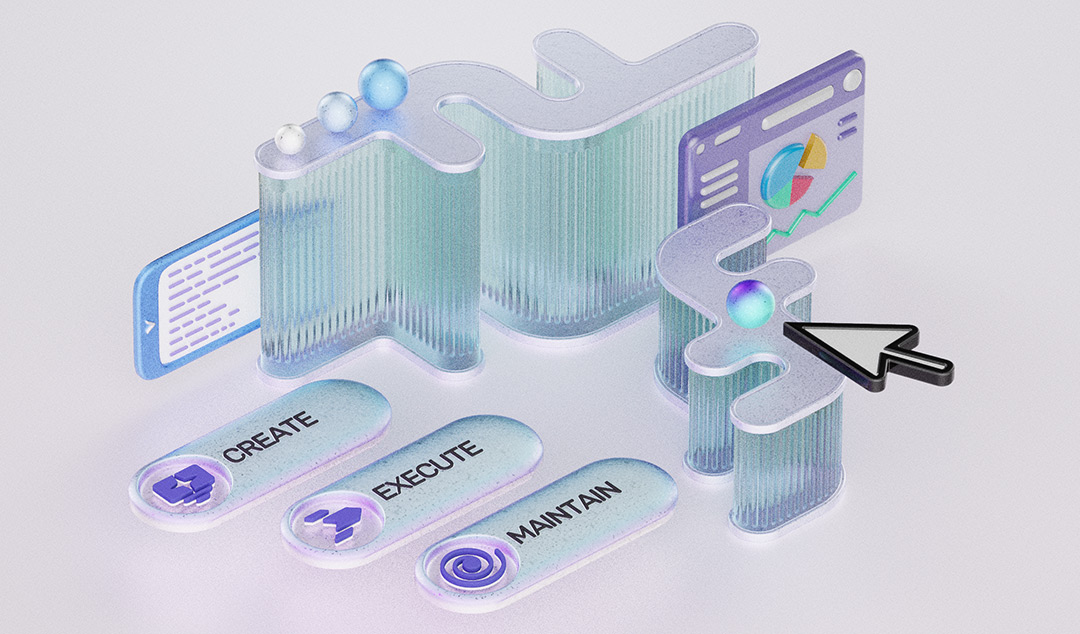The End of Scripting Tests: Future Impact on Testers
The role of SDETs is constantly evolving. With the rise of AI-driven testing and the decreasing need for traditional scripted tests, it is important for SDETs to adapt and embrace new skills, such as strategic thinking, exploratory testing, and continuous learning, to be effective contributors in a new era of software quality.

The role of the technical functional automation tester—often known as the SDET (Software Development Engineer in Test)—is undergoing a significant transformation. As AI-driven technologies, like Functionize’s agentic solution, become increasingly prevalent in software testing, the traditional skillsets that testers have honed over years, or even decades, are facing an existential challenge.
The future of testing is rapidly shifting away from the labor-intensive scripting of tests and reliance on brittle, hard-coded selectors, towards a more intelligent, adaptive approach driven by machine learning and generative AI.
The Brittleness of Traditional Automation
Traditional test automation solutions have long depended on hard-coded selectors to identify and interact with elements on a webpage or application. While effective in controlled environments, this approach is fundamentally flawed due to its fragility. Minor changes to the UI—whether it’s a simple redesign or an update—can break these selectors, causing tests to fail and requiring time-consuming rewrites. This brittleness not only slows down the testing process but also creates a bottleneck in the overall development lifecycle, as teams scramble to fix broken tests instead of focusing on delivering new features.
Moreover, the manual effort required to maintain these scripts often falls squarely on the shoulders of SDETs, who must invest significant time in not only writing but constantly updating the scripts. The technical skillset that SDETs have built up over the years—proficiency in scripting languages, a deep understanding of selectors, and the ability to navigate complex codebases—has traditionally been seen as their core value proposition. However, as AI-driven solutions become more capable of handling these tasks, the role of the SDET is at a crossroads.
Enter Functionize: The Agentic Solution
Functionize’s agentic solution represents a paradigm shift in how test automation is approached. Functionize automates the creation and maintenance of tests without the need for hard-coded selectors, and this is made possible by machine learning and generative AI. Instead of relying on brittle, static code, our platform dynamically understands and adapts to changes in the application, ensuring that tests remain robust and reliable, even as the UI evolves. This eliminates time-consuming maintenance work, and further, dramatically reduces the risk of false positives and test failures caused by minor UI changes.
For SDETs, this shift is both an opportunity and a challenge. The opportunity lies in the ability to move away from the tedious task of maintaining brittle scripts and towards higher-level strategic work—such as designing more effective test strategies, focusing on exploratory testing, and contributing to the overall quality of the product in more meaningful ways. However, the challenge is real: as AI takes over more of the traditional technical tasks, SDETs must evolve their skillsets to remain relevant and to contribute effectively to a new testing approach.
Embracing the Future: Evolving Skillsets for SDETs
So, what does the future hold for SDETs in an AI-driven world? The key lies in embracing change and proactively upskilling to meet the demands of this new era.
Here are a few ways testers can navigate this transition:
- Focus on Strategic Thinking: As AI handles the more technical aspects of testing, SDETs can shift their focus to designing and implementing test strategies that align with broader business goals. Understanding the product from a user’s perspective and ensuring that testing efforts contribute to delivering a high-quality user experience will be critical.
- Develop AI Literacy: While AI is taking over many traditional tasks, understanding how these AI-driven tools work will be essential. SDETs should invest time in learning the basics of machine learning, generative AI, and other related technologies. This knowledge will enable them to effectively collaborate with AI-driven tools and make informed decisions about test design and implementation.
- Expand into Exploratory Testing: Exploratory testing, which involves unscripted, creative testing to find defects that automated tests might miss, is an area where human testers can continue to provide significant value. SDETs can leverage their domain expertise to identify edge cases and ensure that the product is not only functional but also user-friendly and intuitive.
- Continuous Learning and Certification: To stay relevant in this evolving landscape, continuous learning is crucial. SDETs should seek out training and certification opportunities that focus on the latest in AI-driven testing tools, test strategy design, and other emerging areas in the field. Functionize offers training and certification programs that can help testers build these new skills and stay ahead of the curve.
Conclusion
The future of test automation is here, and it’s driven by AI. For SDETs, this presents both a challenge and an opportunity. While the traditional skillset of scripting tests and managing brittle selectors may be diminishing in value, the role of the tester is far from obsolete. By embracing new technologies like Functionize’s agentic solution and upskilling in strategic and exploratory testing, SDETs can continue to deliver critical value to their organizations.
The end of scripting tests does not signify the end of the SDET role—rather, it marks the beginning of a new chapter in software testing, where testers can focus on what truly matters: ensuring that the product delivers the best possible experience for its users.











